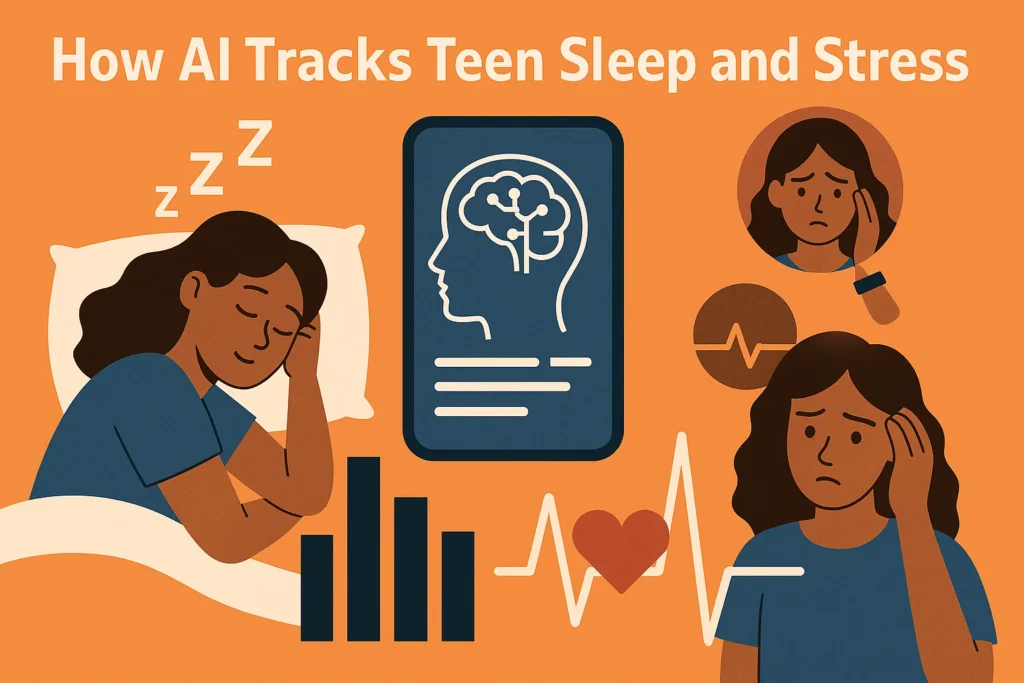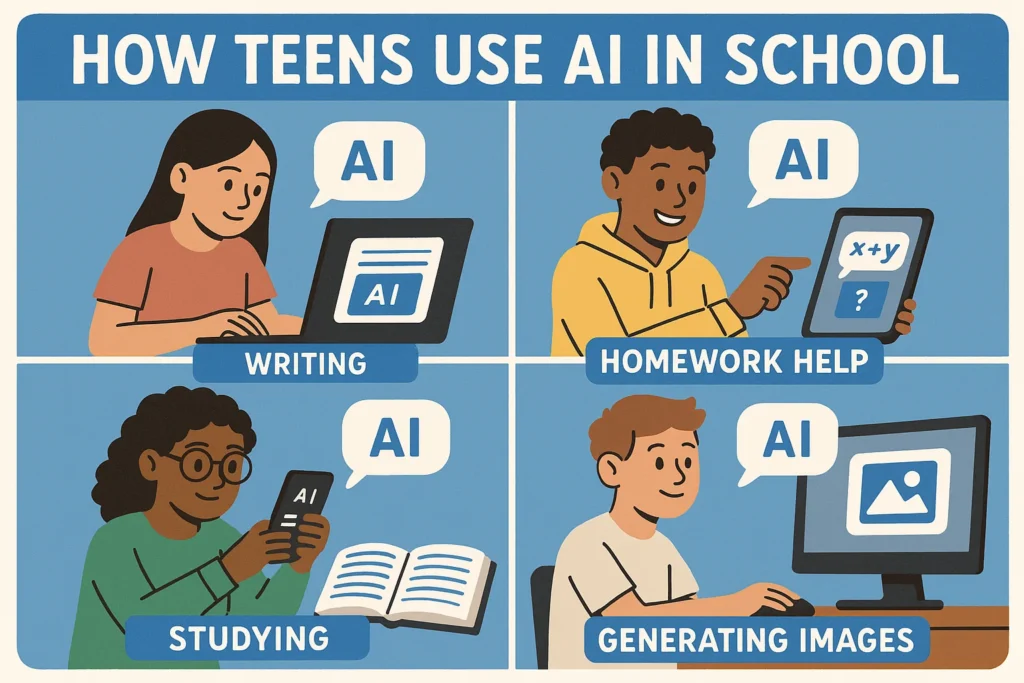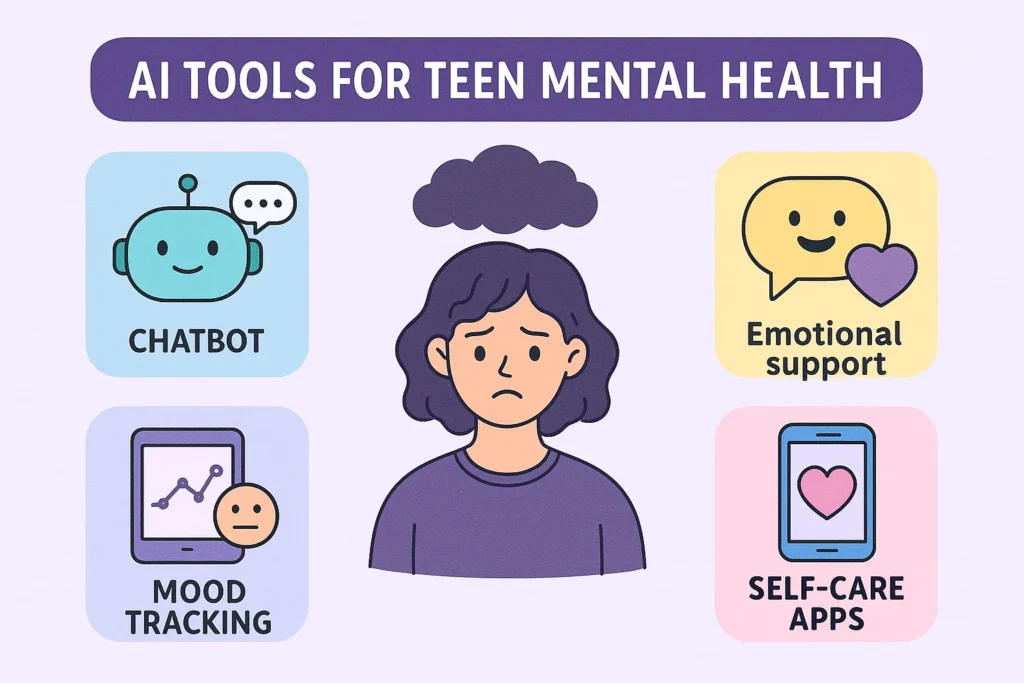💬 Introduction
AI Tracks Teen Sleep and Stress: At AiBlogQuest.com, we explore how artificial intelligence is changing the way families care for health and wellbeing. One of the most exciting — and sometimes concerning — areas of innovation is how AI tracks teen sleep and stress.
From smartwatches to sleep-tracking apps, AI-powered systems can now analyze a teenager’s sleep patterns, detect stress levels, and even suggest personalized improvements. But how does this technology really work, and should parents rely on it completely?
🧠 How AI Tracks Teen Sleep
AI uses sensors and data from wearable devices to measure:
-
🕒 Sleep Duration: Tracks when your teen goes to bed and wakes up.
-
💓 Heart Rate Variability: Identifies restfulness and stress during sleep.
-
💤 Sleep Stages: Detects deep, REM, and light sleep cycles.
-
📱 Phone Activity: AI monitors nighttime phone use to detect poor sleep habits.
Over time, AI learns your teen’s unique sleep pattern and offers personalized suggestions — like adjusting bedtime or limiting late-night screen time.
😰 How AI Detects Teen Stress
AI doesn’t just stop at sleep. Many mental wellness apps now use machine learning to identify early signs of stress through:
-
🎧 Voice Tone Analysis (detects anxiety or irritation)
-
💬 Chat Sentiment Tracking (monitors language for mood changes)
-
📊 Physiological Data (heart rate, temperature, breathing patterns)
-
🧩 Activity Changes (less movement or social interaction may signal stress)
Some AI systems can even send parents alerts if unusual stress patterns continue for several days.
⚖️ Benefits for Parents and Teens
1️⃣ Early Stress Detection: AI helps catch signs of burnout or anxiety before they worsen.
2️⃣ Improved Sleep Quality: Real-time feedback encourages healthier routines.
3️⃣ Data-Driven Insights: Parents and teens can view weekly wellness reports together.
4️⃣ Healthier Tech Balance: Some AI tools recommend bedtime “digital detox” breaks.
5️⃣ Custom Support Plans: Apps can integrate meditation or breathing exercises.
🔒 Privacy and Ethical Considerations
While AI brings major wellness benefits, parents should remain cautious about data privacy.
-
Always read how apps store or share health data.
-
Choose devices that allow you to control data permissions.
-
Discuss consent with your teen before activating sleep or stress tracking features.
Remember — AI should support, not replace, parental awareness and open communication.
💡 Parenting Tip
If your teen struggles with sleep or stress, use AI tools as conversation starters, not surveillance systems. Encourage self-awareness and balance instead of constant monitoring.
🔗 Resources – AiBlogQuest.com
-
AI Tools for Teen Mental Health
-
Using AI to Detect Cyberbullying Early
❓ FAQs
Q1. Can AI really detect stress accurately?
AI can identify stress patterns with impressive accuracy, but it’s not a substitute for medical diagnosis or therapy.
Q2. Is AI sleep tracking safe for teens?
Yes, when used responsibly. Always ensure the app or device follows proper data protection standards.
Q3. Do AI wearables share teen data with third parties?
Some do. Always check privacy settings before syncing health data online.
Q4. How can parents use AI sleep data effectively?
Use insights to discuss healthy habits — like better bedtime routines or screen limits — rather than as tools for control.AI Tracks Teen Sleep and Stress.



